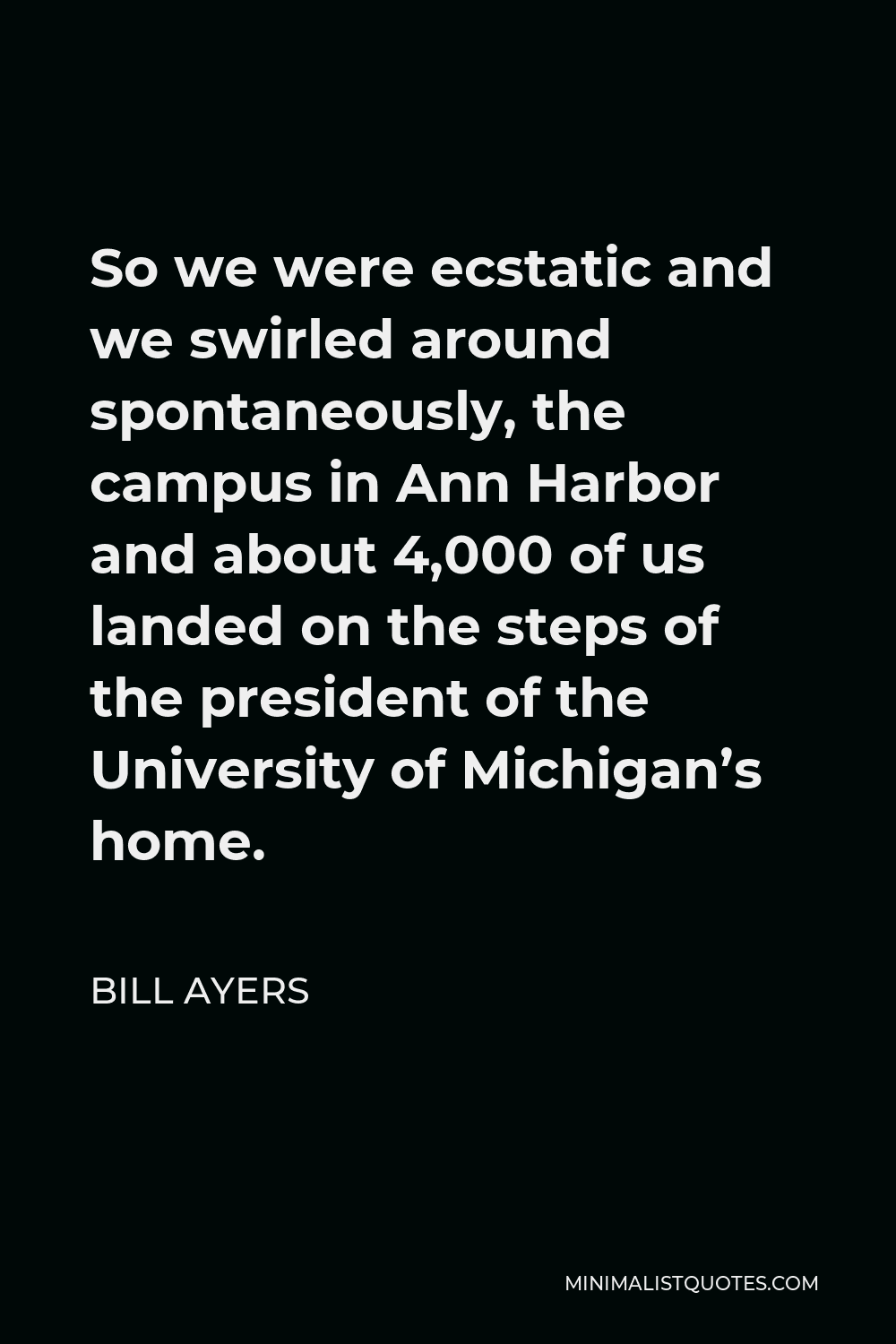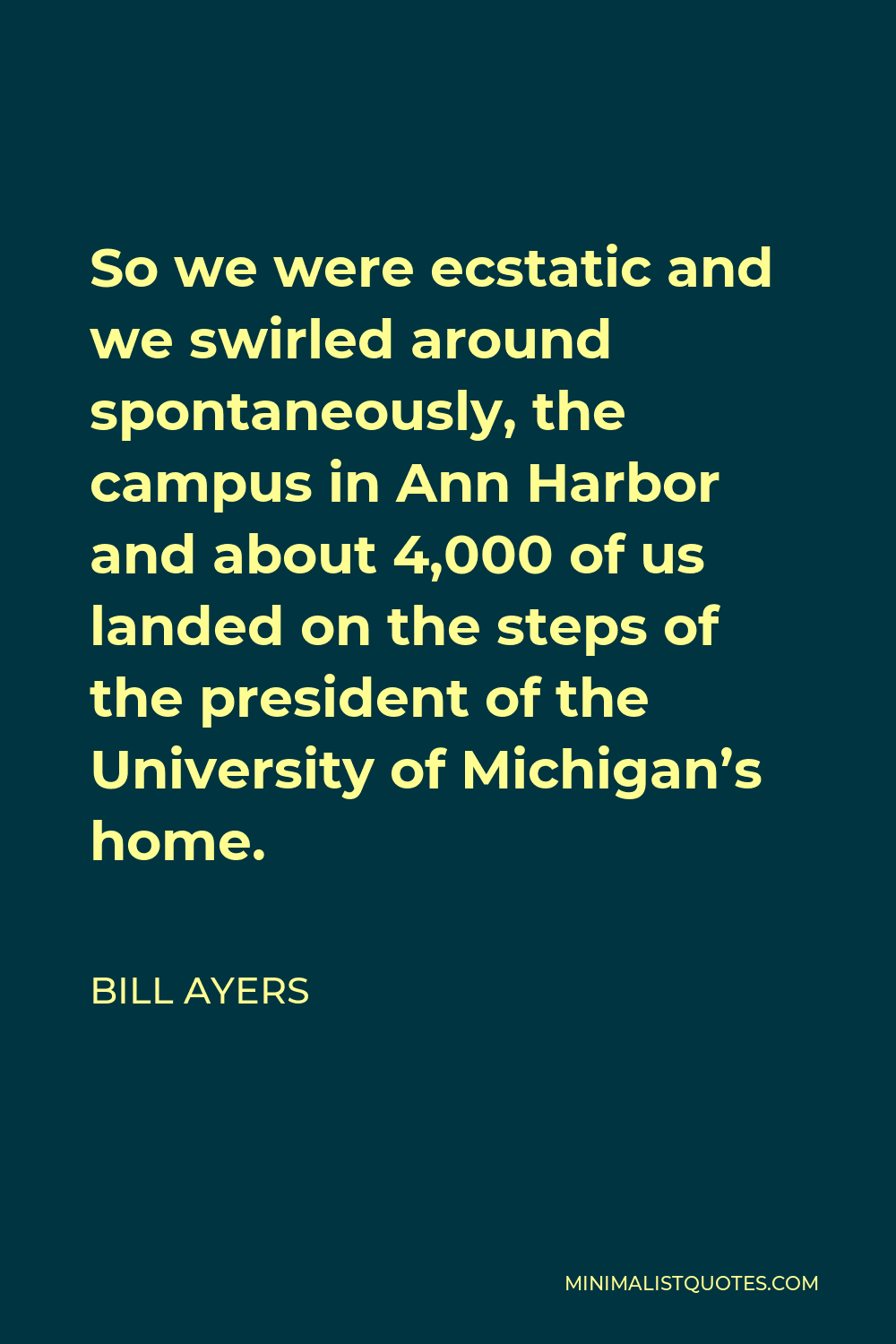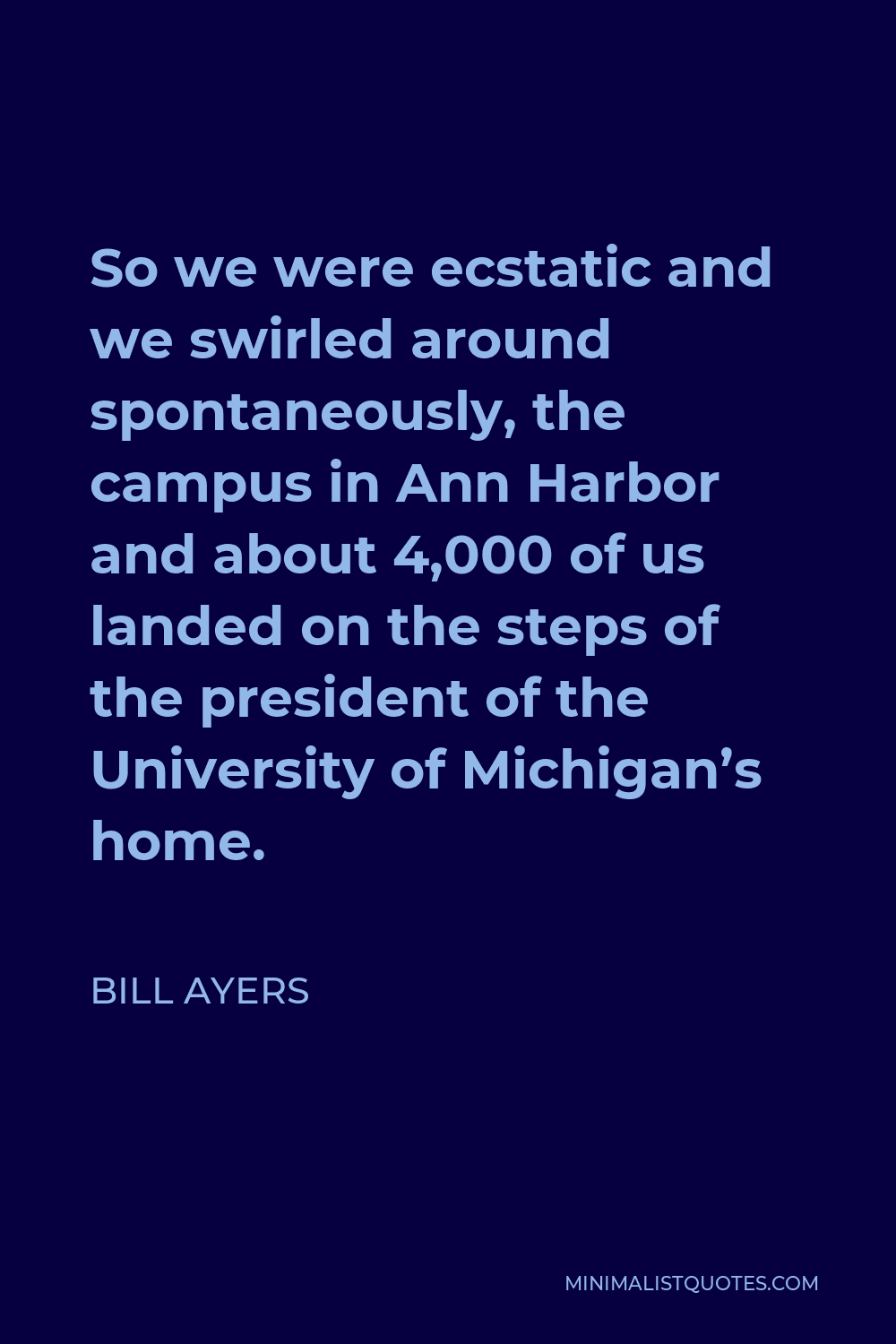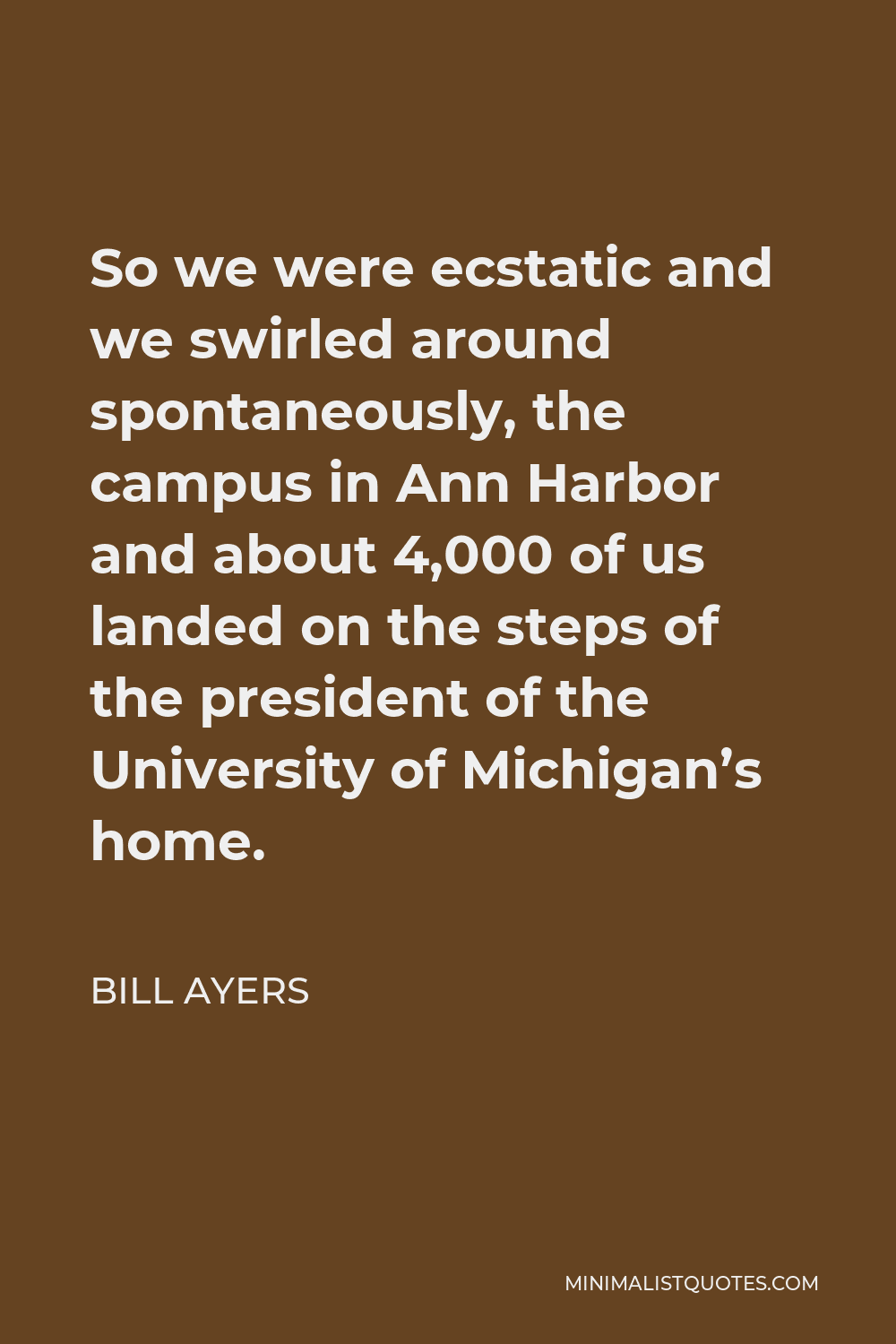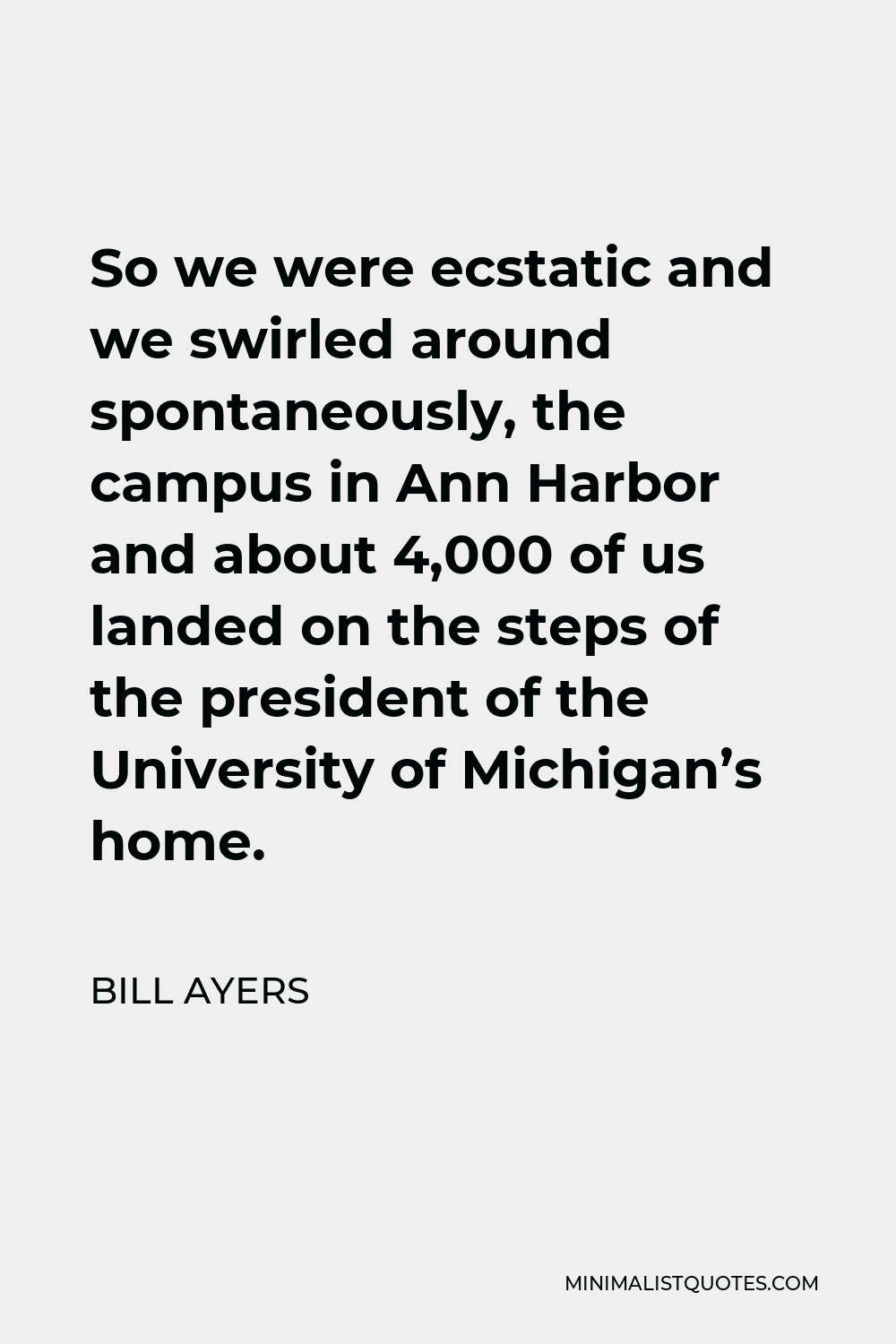Guilty as hell. Free as a bird. America is a great country.
BILL AYERSSo we were ecstatic and we swirled around spontaneously, the campus in Ann Harbor and about 4,000 of us landed on the steps of the president of the University of Michigan’s home.
More Bill Ayers Quotes
-






-





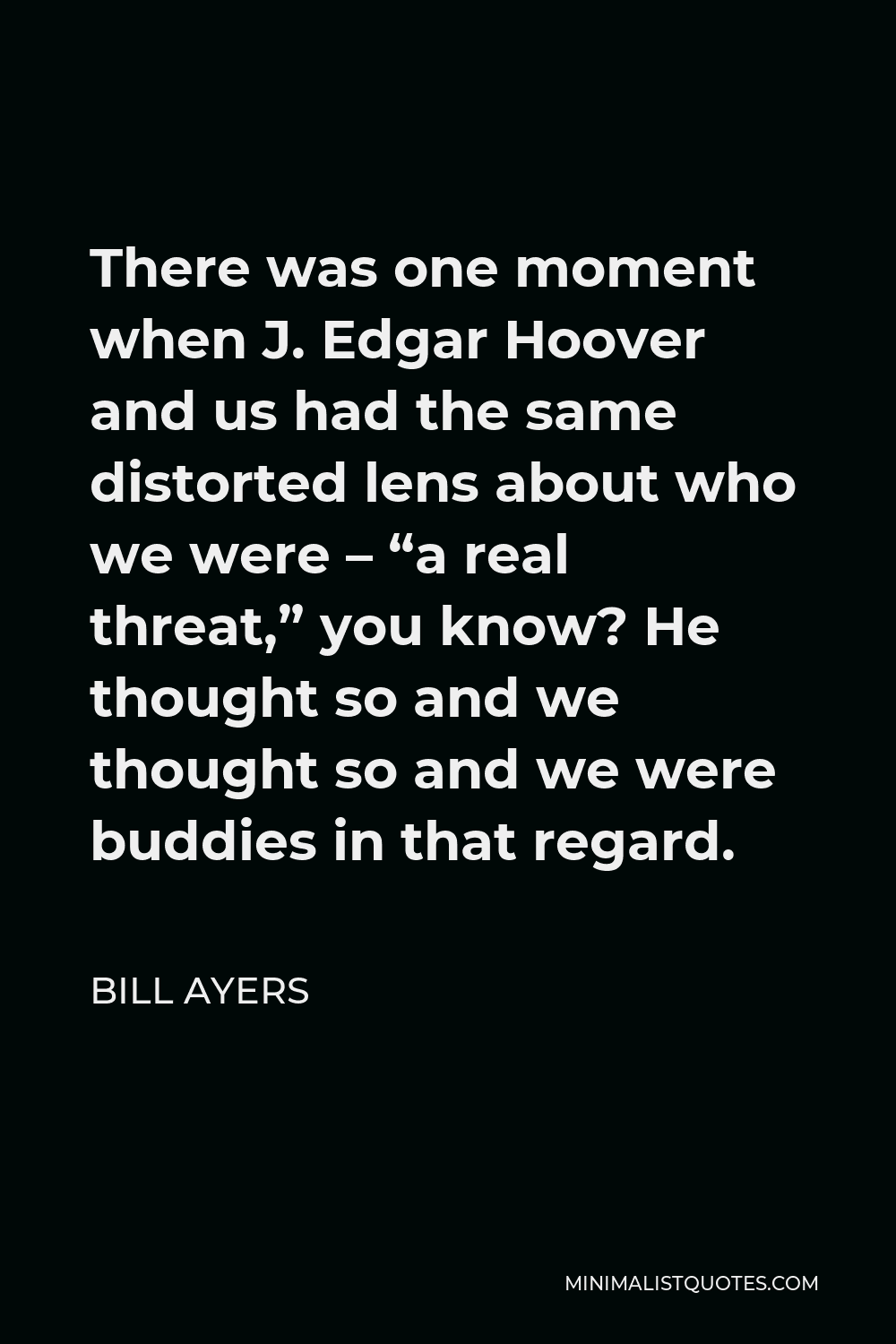
There was one moment when J. Edgar Hoover and us had the same distorted lens about who we were – “a real threat,” you know? He thought so and we thought so and we were buddies in that regard.
BILL AYERS -





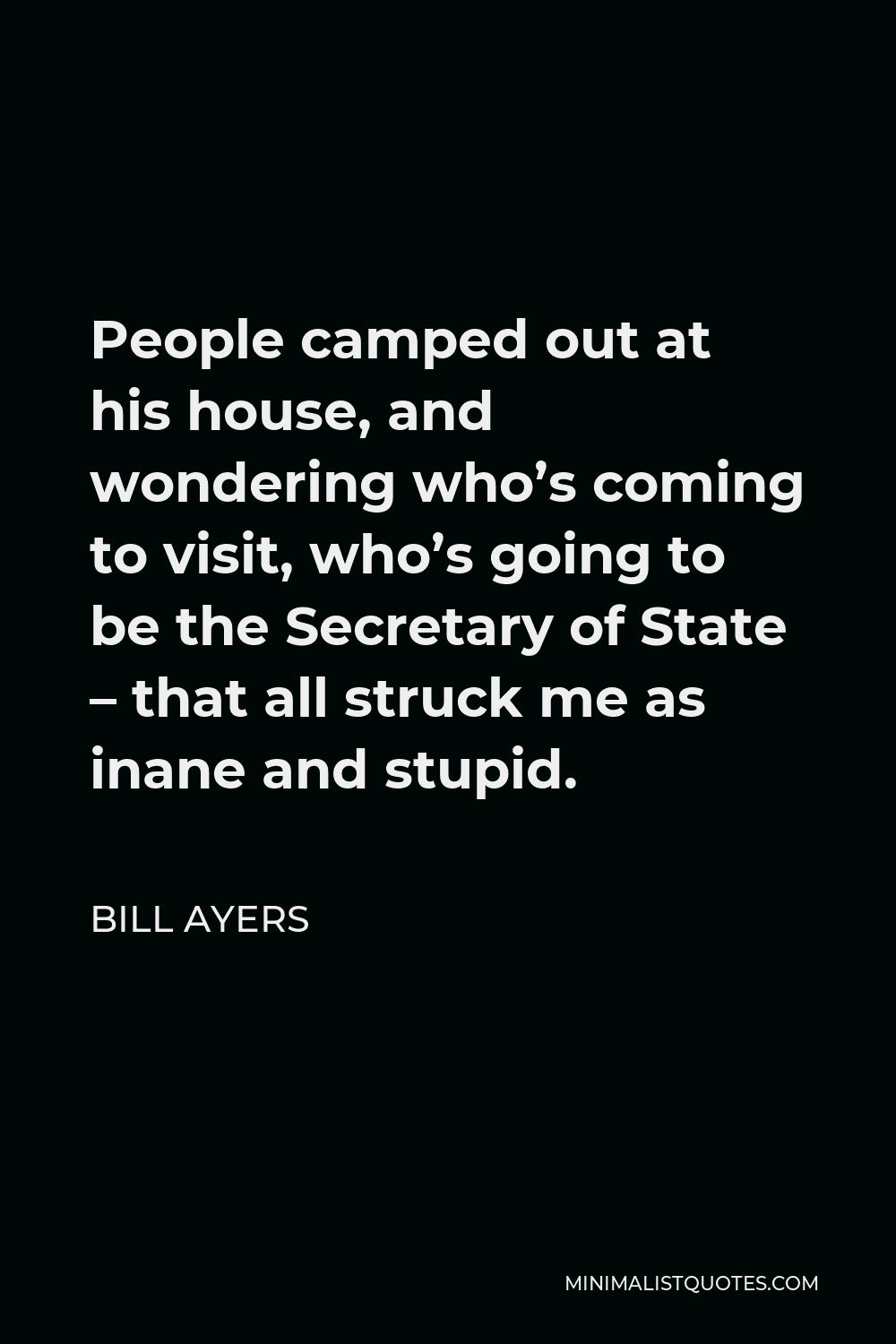
People camped out at his house, and wondering who’s coming to visit, who’s going to be the Secretary of State – that all struck me as inane and stupid.
BILL AYERS -





![Bill Ayers Quote - [Lyndon ] Johnson was responding to a black freedom movement that was tearing the country open and he did what he had to do as a conservative politician.](https://minimalistquotes.com/images/lyndon-johnson-was-responding-to-a-black-freedom-m.jpg)
[Lyndon ] Johnson was responding to a black freedom movement that was tearing the country open and he did what he had to do as a conservative politician.
BILL AYERS -





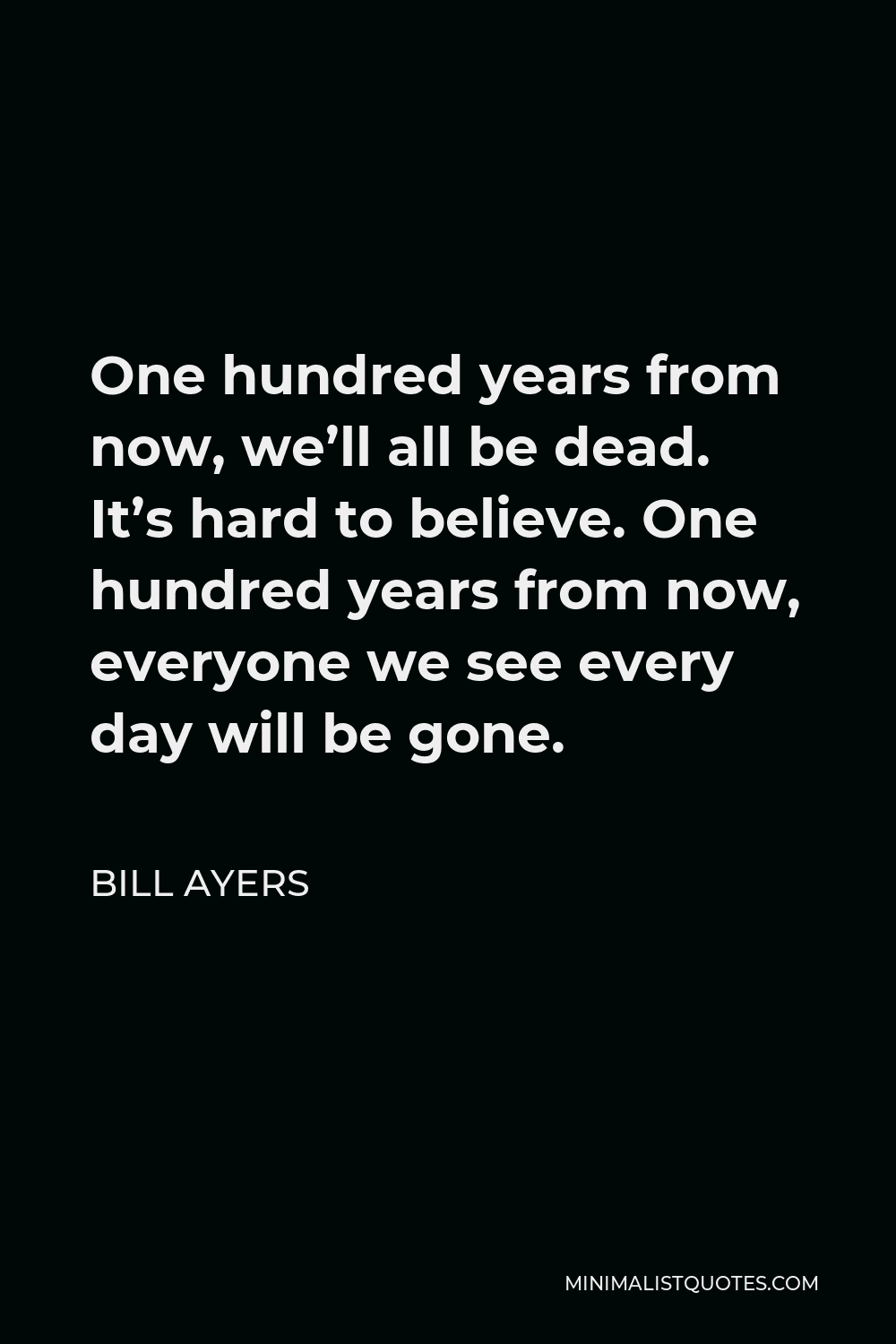
One hundred years from now, we’ll all be dead. It’s hard to believe. One hundred years from now, everyone we see every day will be gone.
BILL AYERS -





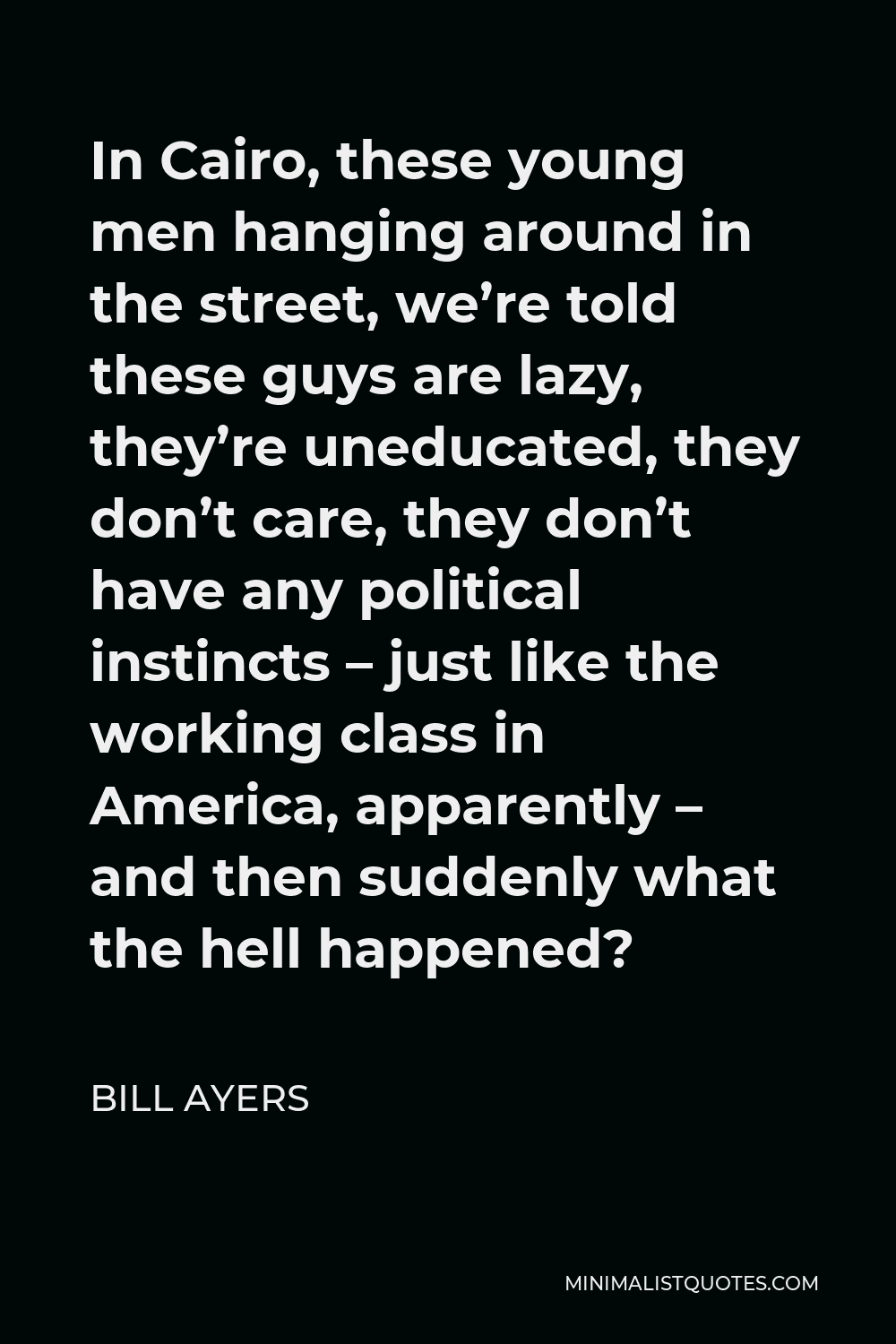
In Cairo, these young men hanging around in the street, we’re told these guys are lazy, they’re uneducated, they don’t care, they don’t have any political instincts – just like the working class in America, apparently – and then suddenly what the hell happened?
BILL AYERS -





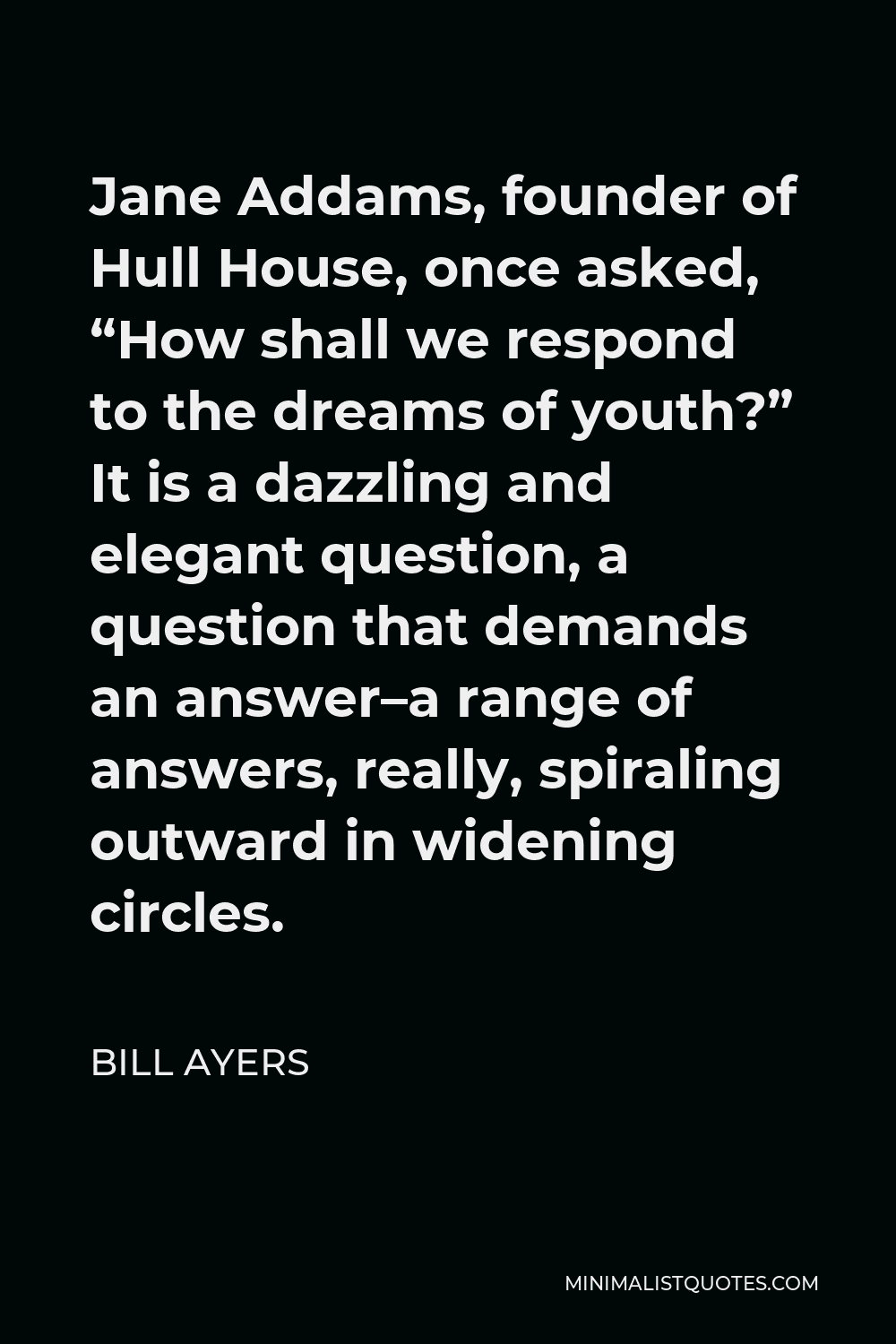
Jane Addams, founder of Hull House, once asked, “How shall we respond to the dreams of youth?” It is a dazzling and elegant question, a question that demands an answer–a range of answers, really, spiraling outward in widening circles.
BILL AYERS -





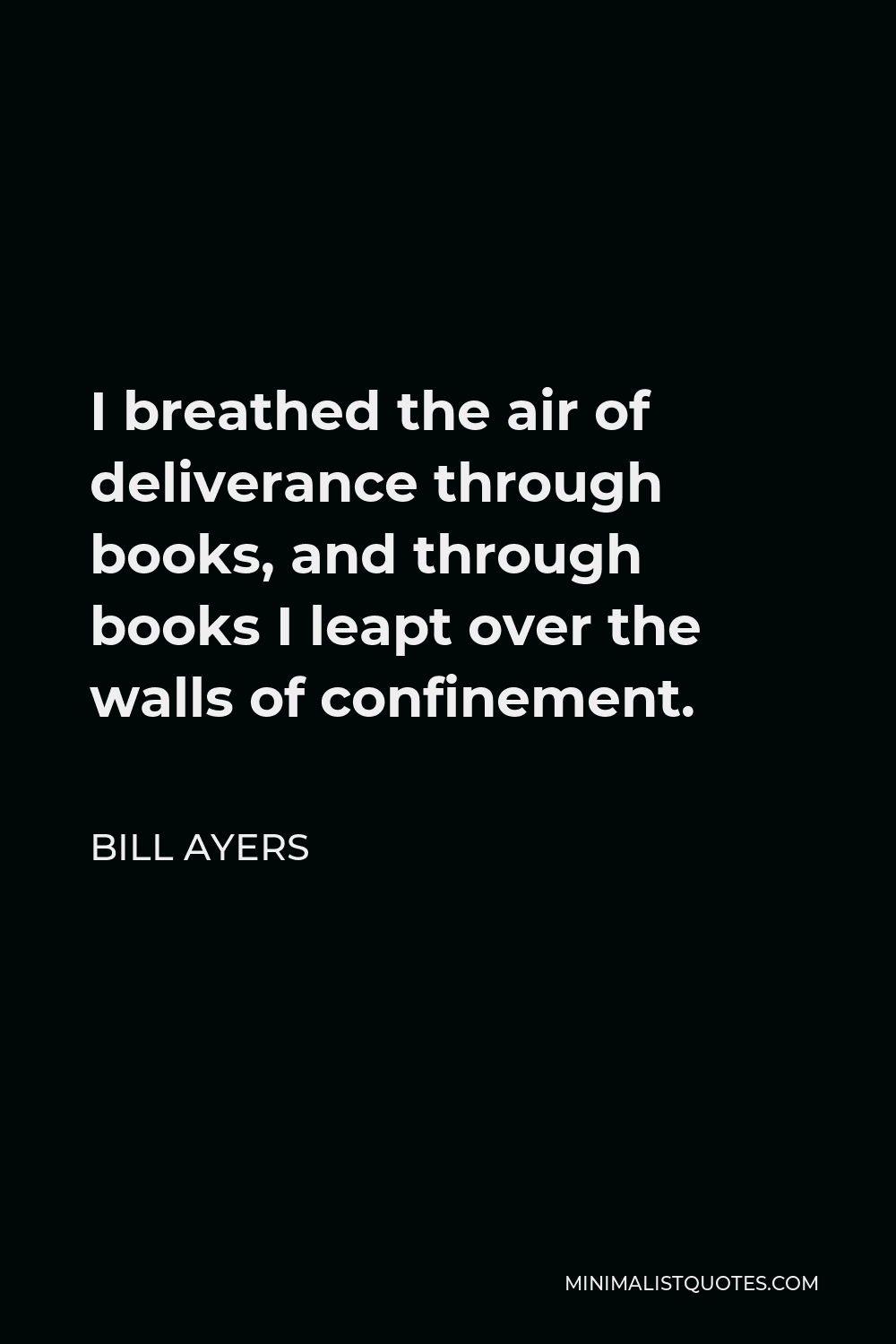
I breathed the air of deliverance through books, and through books I leapt over the walls of confinement.
BILL AYERS -





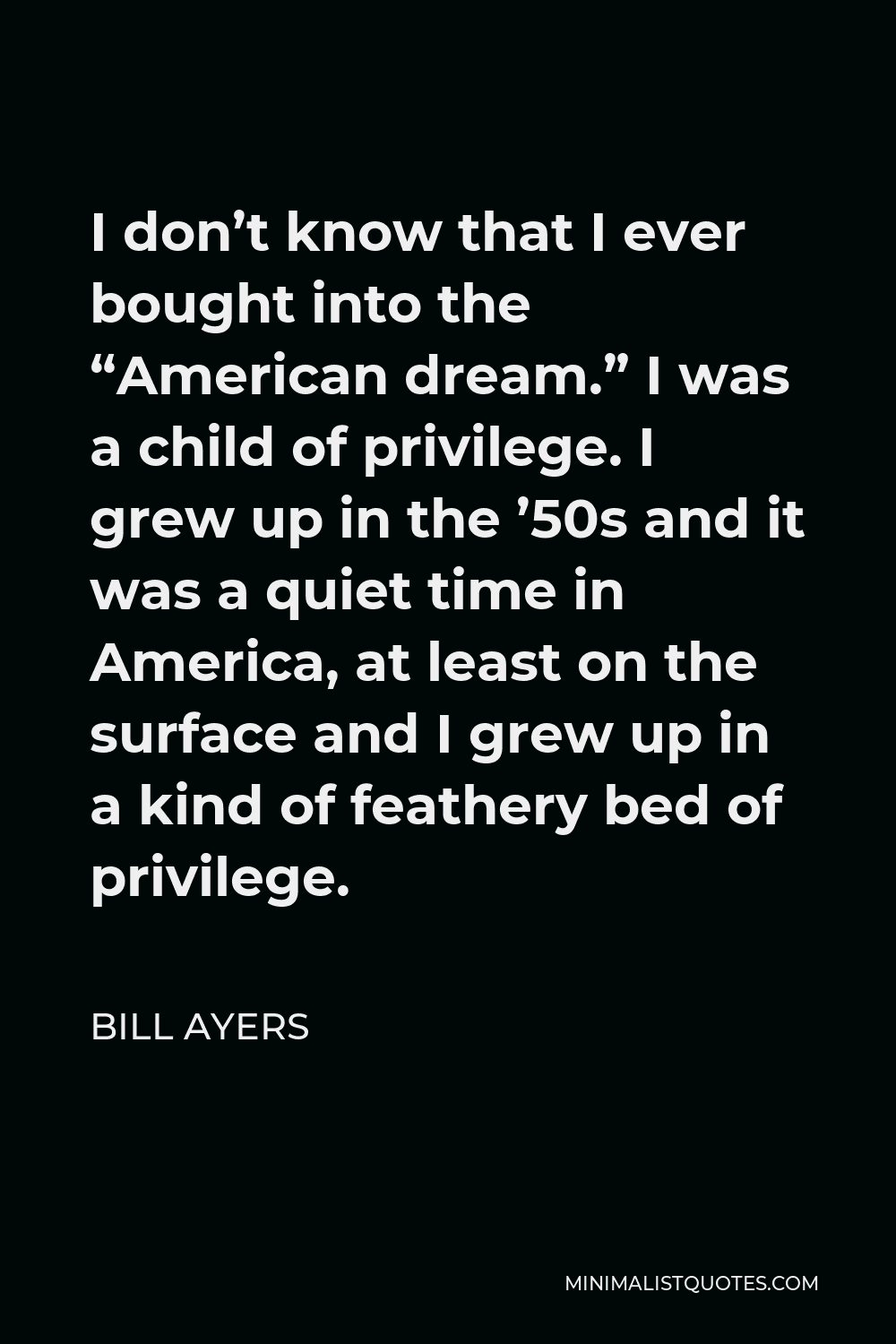
I don’t know that I ever bought into the “American dream.” I was a child of privilege. I grew up in the ’50s and it was a quiet time in America, at least on the surface and I grew up in a kind of feathery bed of privilege.
BILL AYERS -





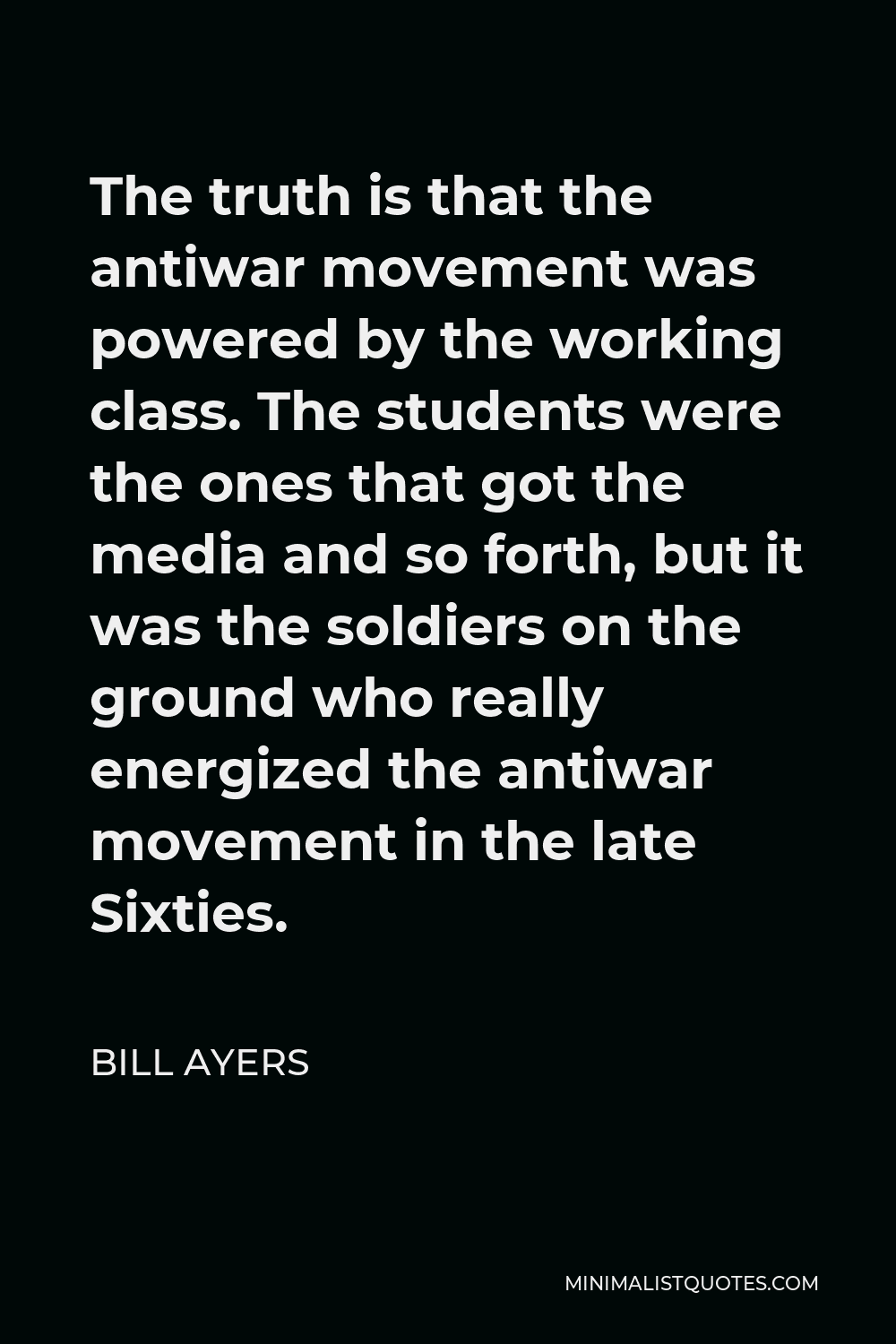
The truth is that the antiwar movement was powered by the working class. The students were the ones that got the media and so forth, but it was the soldiers on the ground who really energized the antiwar movement in the late Sixties.
BILL AYERS -





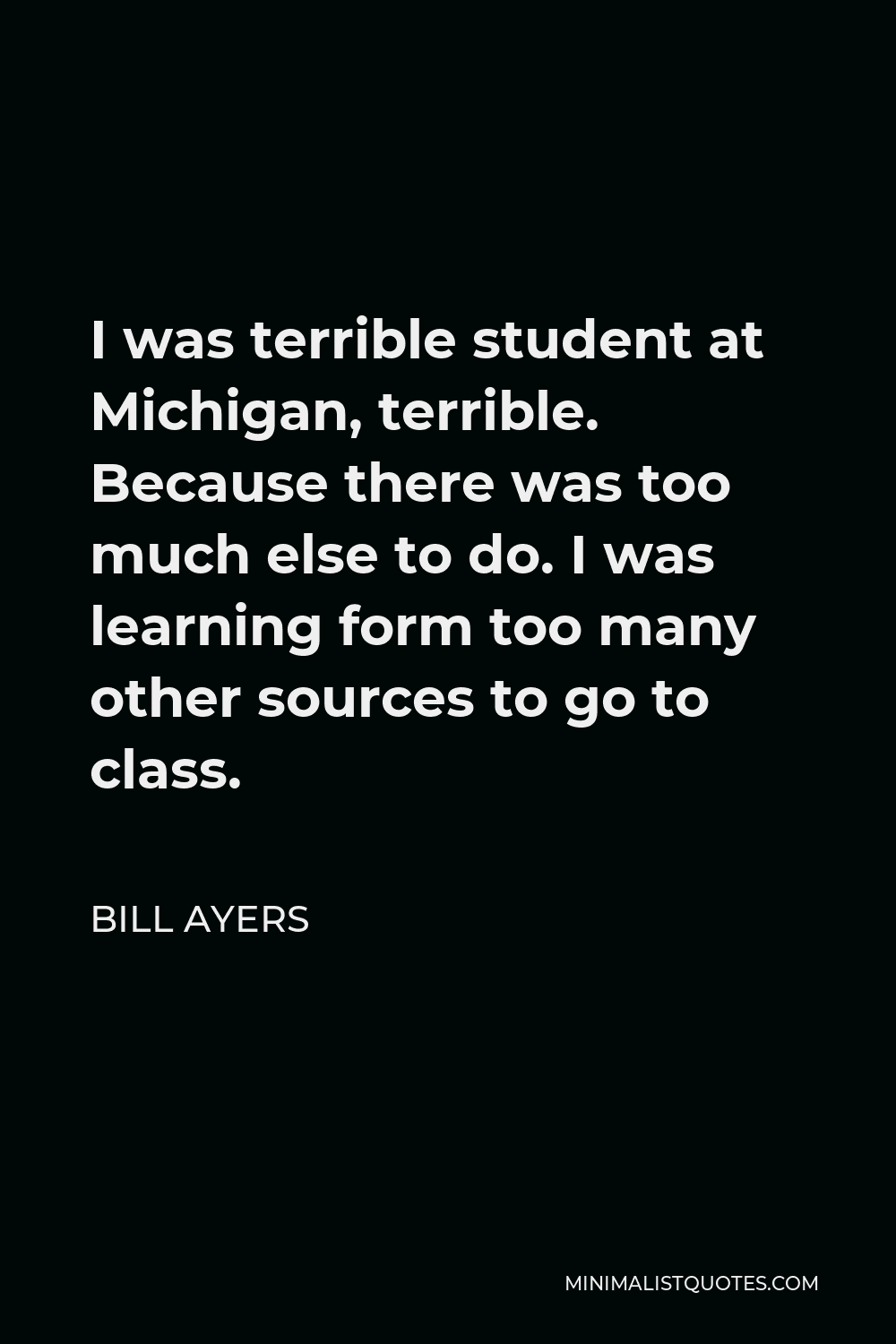
I was terrible student at Michigan, terrible. Because there was too much else to do. I was learning form too many other sources to go to class.
BILL AYERS -






I suffer from a genetic flaw, which is that my mother was a hopeless Pollyanna.
BILL AYERS -





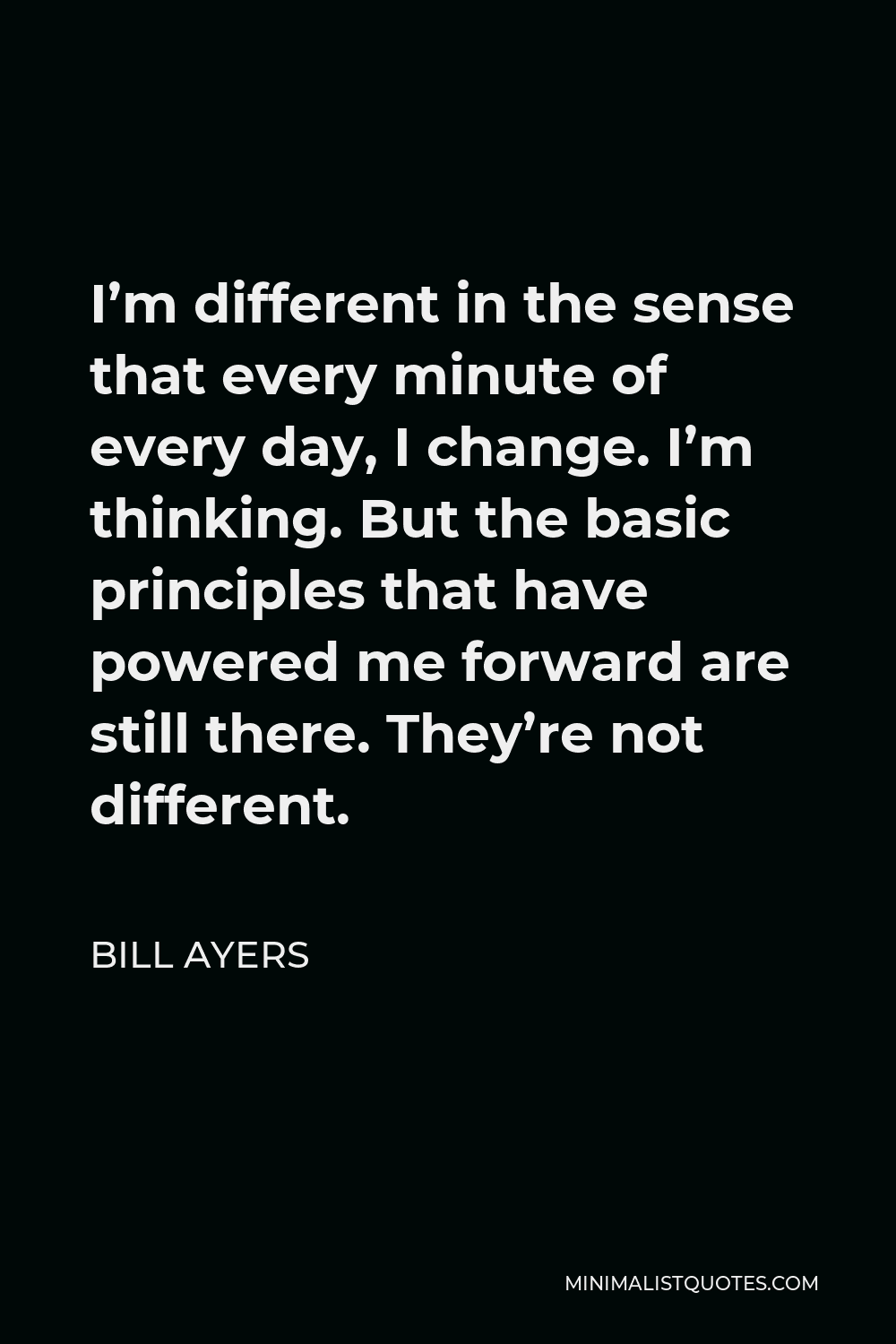
I’m different in the sense that every minute of every day, I change. I’m thinking. But the basic principles that have powered me forward are still there. They’re not different.
BILL AYERS -





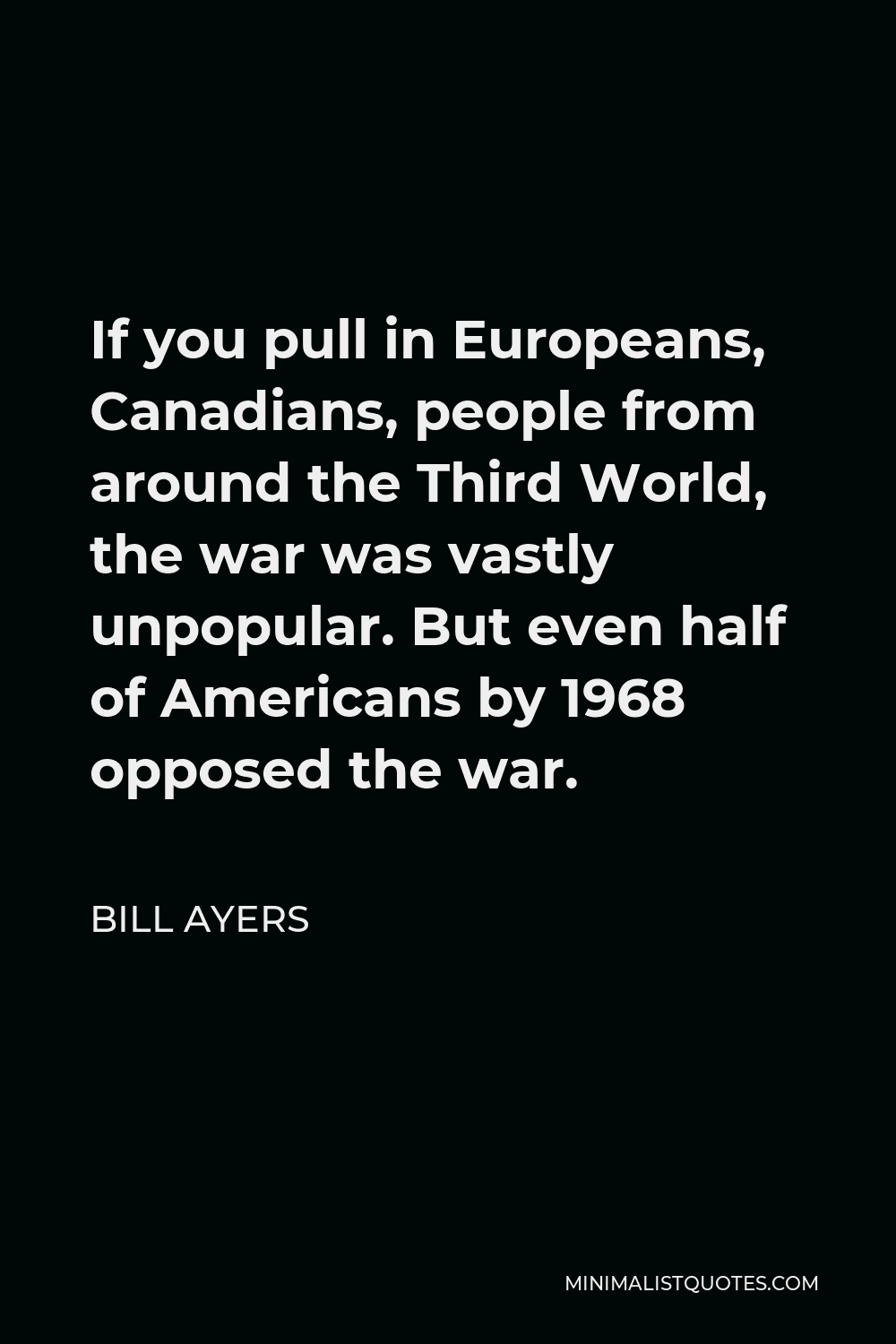
If you pull in Europeans, Canadians, people from around the Third World, the war was vastly unpopular. But even half of Americans by 1968 opposed the war.
BILL AYERS -





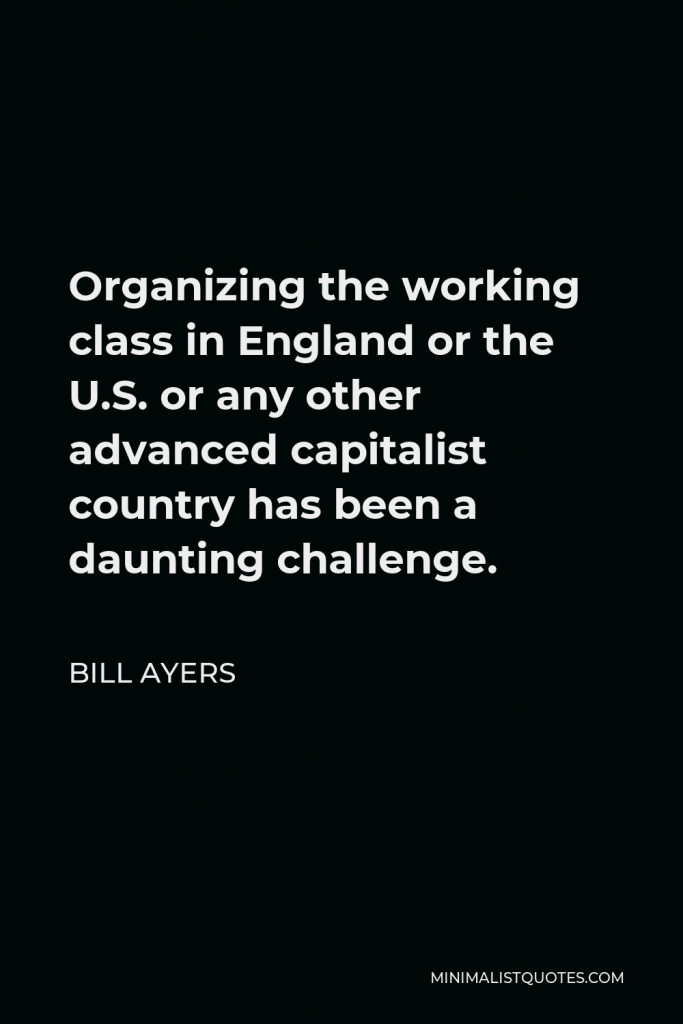

Organizing the working class in England or the U.S. or any other advanced capitalist country has been a daunting challenge.
BILL AYERS -





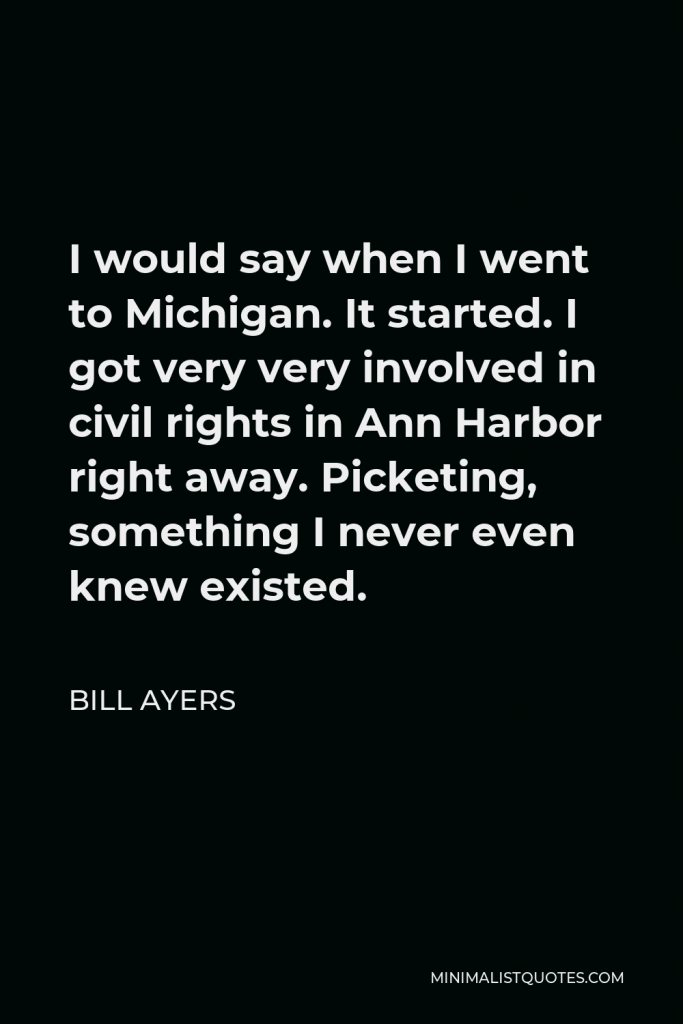

I would say when I went to Michigan. It started. I got very very involved in civil rights in Ann Harbor right away. Picketing, something I never even knew existed.
BILL AYERS
